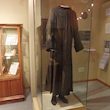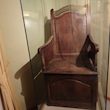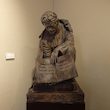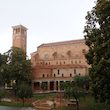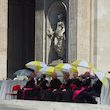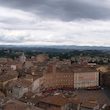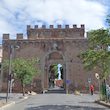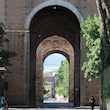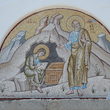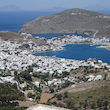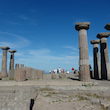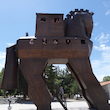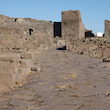Saint Artemius (d.363)
Saint Artemius was a soldier under Emperor Constantine the Great. He was appointed as the imperial prefect of Egypt by Emperor Constantius, and used his influential position to spread the Arian heresy. During the reign of Julian the Apostate, Artemius …
Saint Luke (1st century)
Luke is one of the four Gospel writers, or Evangelists, of the New Testament, but, unlike the others, he also wrote a second volume entitled Acts of the Apostles. Luke’s Gospel emphasizes the compassion of Jesus and his concern for …
Saint Callistus I (d.223)
As a young slave, Pope Saint Callistus I was given the task of maintaining the collected funds which were given as alms by Christians. Callistus lost the funds he was supposed to be minding, and ran away from Rome. He …
Saint Edward the Confessor (1003-1066)
Saint Edward the Confessor was born a prince in England. His father was overthrown during the Danish invasion, and Edward and his brother were sent to be killed in Denmark. The officer in charge of the transport took pity on …
Saint Kenneth (c.525-c.599)
There are many legends surrounding Saint Kenneth. According to one popular legend, he was born in Glengiven, Ireland. He became a monk and was ordained a priest. Kenneth spent some time in Ireland preaching, and then went to share the …
Saint Francis Borgia (1510-1572)
Saint Francis Borgia was born into a noble family in Spain. He became a duke and lived happily with his wife and their eight children. Unlike many nobles in Spain at the time, Francis was a true man of God, …
Saint John Leonardi (1541-1609)
Saint John Leonardi was ordained a priest and became very passionate about ministering to prisoners and the sick. His commitment and devotion attracted other young men to assist him, and they later become priests themselves. John and his fellow assistants …
Saint Sergius the Martyr (d.303)
Saint Sergius was an officer in the Roman army under Emperor Maximian. He was well liked by the emperor until he admitted to being a Christian after he and his fellow officer, Bacchus, refused to enter a temple of Jupiter. …
Saint Bruno (c.1030-1101)
Saint Bruno was born in Cologne, Germany, in approximately 1030. He stood with Pope Gregory VII in his battle against the corruption and decadence of the clergy. Bruno was also involved in the removal of a scandalous archbishop by the …
Saint Maria Faustina Kowalska (1905-1938)
Saint Maria Faustina Kowalska was born in Poland in 1905. She was a member of a large family, and held odd jobs to help out before joining the Congregation of the Sisters of Our Lady of Mercy in 1925. As …
Saint Leodegarius (c.615-678)
Saint Leodegarius was the son of Saint Sigrada and the brother of Saint Gerinus. His born to a noble family in France and was brought up in the court of King Clotaire II. Leodegarius was a reforming bishop of Autun …
Saint Wenceslaus (c.907-929)
Saint Wenceslaus was born in 907 near Prague. His holy grandmother raised him and wanted to put him on the throne to replace his mother, an anti-Christian. Wenceslaus eventually took over the throne. During his reign, Saint Wenceslaus focused on …
Saint Vincent de Paul (1580-1660)
Vincent de Paul made a decision to serve the poor that changed his life and changed the world. He was born in France in 1581 into a peasant family. He progressed rapidly in school, and was ordained a priest at …
Sts. Cosmos and Damian (d.303)
Cosmos and Damian were killed for their Christian faith. Other than the fact that they were martyrs, we know little about them. Legend says that they were twins who were skilled doctors in Arabia. They are venerated in that part …
Saint Sergius of Radonezh (1314-1392)
Saint Sergius was born to a noble family in Russia. His baptismal name was Bartholomew. Sergius's family was impoverished when they had to flee to Rostov, near Moscow. After the death of his parents, Sergius became a hermit, along with …
Saint Pacifico of San Severino (1653-1721)
Saint Pacifico was born into a well-off family in San Severino, Italy. He was ordained, taught philosophy, and became an accomplished preacher. Pacifico was a severe man. He fasted at all times, wore a penitential shirt made of iron, and …
Saint Padre Pio da Pietrelcina (1887-1968)
Saint Padre Pio da Pietrelcina was born on May 25, 1887. It was affirmed by his mother that he was able to see and converse with Jesus, the Virgin Mary and his guardian angel as a child. When he became …
Saint Maurice (d.287)
Saint Maurice was a soldier. He was an officer of the Theban Legion of Emperor Maximian's army. Emperor Maximian's army was made up of Christians from Upper Egypt. When he and his fellow soldiers were ordered to sacrifice to gods …
Saint Matthew (1st century)
Matthew was a Jew who collected taxes for the Romans, who occupied Israel during the life of Jesus. The tax collectors were usually hated by their fellow Jews. Some strict Jews like the Pharisees considered tax collectors to be sinners …
Saint Andrew Kim Taegon (1821-1846)
Saint Andrew Kim Taegon is among the 103 Korean martyrs canonized by Pope John Paul II in 1984. During the 18th and 19th centuries, Christians in Korea were persecuted. Openly practicing the faith meant risking death. At the age of …
Saint Januarius (d.304)
Saint Januarius was born in Italy. He was the bishop of Benevento during Emperor Diocletion's persecution of Christians. One day, Bishop Januarius went to visit two deacons and two laymen who were imprisoned. During his visit, he was also incarcerated. …
Saint Robert Bellarmine (1542-1621)
Saint Robert Bellarmine was a theologian and Scripture scholar. He was a Jesuit priest who was made a cardinal because the pope said, “He had not his equal for learning.” In spite of his brilliance and honors, Robert ate only …
Saint Catherine of Genoa (1447-1510)
Saint Catherine of Genoa was beautiful, intelligent, and pious. She felt called to religious life, and attempted to enter a convent when she was 13. However, she was turned away because of her youth, and instead entered into an arranged …
Saint Notburga (1265-1313)
Saint Notburga was a servant in the kitchen of Count Henry Rattenberg in Austria. At the end of each day, Notburga took the leftovers from the day's meals into town and gave them away to the poor and starving. The …

